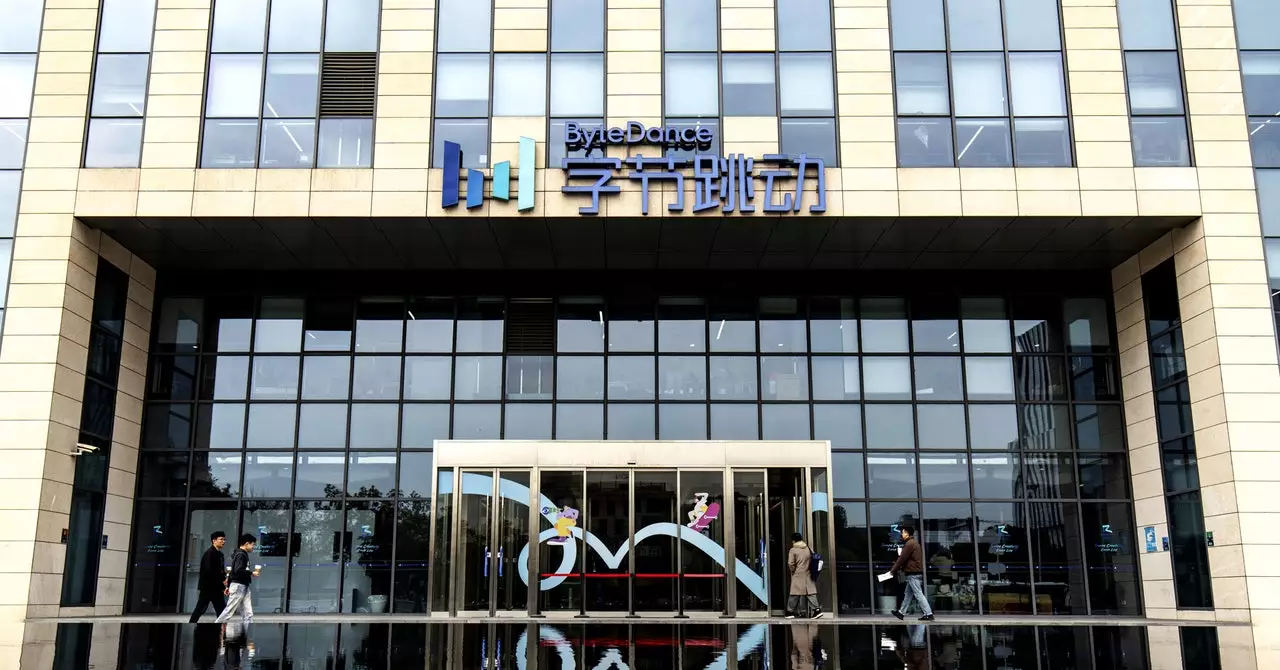This week, an unexpected turn of events has unfolded in the realm of artificial intelligence research. Keyu Tian, previously an intern at ByteDance, found himself at the center of controversy after winning a prestigious award at the Neural Information Processing Systems (NeurIPS) conference. His journey to this accolade has sparked significant debate within the AI research community. Citing allegations of professional misconduct—including sabotaging colleagues’ work—ByteDance recently filed a lawsuit against Tian for over a million dollars. This backdrop raises essential questions regarding the standards of professional ethics and accountability in the rapidly evolving AI sector.
Despite the cloud of controversy hanging over him, Tian was recognized as the first author of a paper that garnered the Best Paper Award at NeurIPS. The research, “Visual Autoregressive Modeling: Scalable Image Generation via Next-Scale Prediction,” introduces a novel image generation method touted to be more efficient and faster than existing techniques. Co-authored with peers mostly linked to ByteDance and Peking University, the paper presents compelling advancements in AI-generated imagery. The NeurIPS award committee praised the paper not only for its innovative presentation but also for its rigorous experimental validation and insightful observations regarding scaling laws.
The recognition bestowed upon Tian has ignited a heated discourse within the AI community, illuminating potential discrepancies between merit-based recognition and ethical conduct. Critics have underscored the importance of maintaining ethical standards when bestowing accolades. Renowned AI researcher Abeba Birhane, who heads the AI Accountability Lab, took to social media to express her concerns. She questioned the integrity of the selection process, arguing that awarding such recognitions to individuals with questionable professional histories may undermine NeurIPS’s reputation and the core values it ostensibly upholds.
Moreover, this incident brings to light the broader implications of how research integrity is perceived in the field of AI. With AI’s growing influence on various aspects of society, it is crucial for governing bodies and academic institutions to establish robust ethical frameworks that guide not only the creation of research but also its dissemination and recognition.
In response to the burgeoning discussions surrounding Tian’s award, a spokesperson for NeurIPS clarified that the award was conferred based on the paper’s scientific merit rather than Tian’s personal history or actions. They emphasized that the selection committee adhered strictly to a blind review process, which intentionally sidesteps considerations of authorship to maintain objectivity. This assertion attempts to reaffirm the commitment to scientific rigor and integrity within the conference’s operations.
However, the controversy speaks to a larger systemic issue within the academic and research environments. Even where formal procedures are followed, the perceptions of ethics and accountability can shape the broader acceptance and impact of research outputs in the AI domain.
As the dust settles on this incident, it is incumbent upon the AI research community to engage in meaningful dialogue about ethical standards and accountability. While one person’s achievements should be recognized based on merit, the integrity of the underlying processes must be equally valued. This scenario invites researchers, organizations, and conferences alike to rethink how they define success and ensure that their values mirror their actions. The landscape of AI is ever-changing, but so too must be our commitment to maintaining high ethical standards at every turn.

